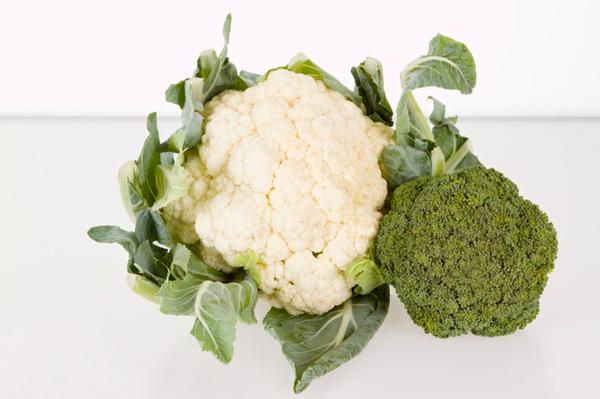7 Cruciferous Vegetables to Promote Heart Health

Do you consume 2 ½ cups of vegetables daily as recommended by the 2015 Dietary Guidelines for Americans?
Cruciferous vegetables are a nutrient-rich option for boosting daily vegetable intake. These vegetables are a good source of dietary fiber, vitamins K, C, and E, folate, calcium, and potassium.
Research indicates there may be a link between some of the nutrients and phytochemicals contained in cruciferous vegetables with reduced cancer risk and improved cardiovascular health.
Here are 7 cruciferous vegetables to incorporate in your diet:
#1 Kale
One cup of Kale provides over 1000 mcg of vitamin K. The fiber, potassium, folic acid, and vitamin C found in kale support heart health. Select dark, colored bunches of kale, avoiding yellow and brown leaves.
#2 Broccoli
Microwave or steam broccoli instead of boiling it to reduce nutrient losses. You can consume both the stalks and the florets. Broccoli is a rich source of the enzyme sulforaphane, which is involved in liver detoxification and three B vitamins ( B6, B12, and folate) that reduce homocysteine levels.
#3 Cabbage
A good source of Vitamins C and K, consume cabbage raw, cooked, or fermented. Fermented cabbage, such as sauerkraut, provides additional probiotic benefits.
#4 Cauliflower
Cauliflower is a rich source of giver, vitamin C, and folate. Boiling cauliflower results in significant phytonutrient loss. Instead, consume cauliflower raw, sautéed, or steamed for the greatest nutrient “bang”. Research shows cholesterol-lowering properties of cabbage are increased when steamed.
#5 Arugula
Both mature and “baby” forms of arugula have a peppery taste. While most commonly consumed in salads, arugula can also be sautéed. This is a very low-calorie vegetable, providing Vitamins A, C, and K, folic acid, potassium, calcium.
#6 Kohlrabi
Low in calories, kohlrabi provides B vitamins, phosphorous, potassium, and calcium. Both bulbs and greens are both edible. The bulbs can be consumed cooked or raw, while the greens are typically steamed or sautéed.
#7 Bok choy
A great source of calcium and vitamins A, C, and K, both the leaves and stalks of bok choy are edible. Bok choy is most commonly consumed in stir-fries and soups, but consider adding the more tender “baby” bok choy to salads for a fresh, crunchy texture.
Tips as you add cruciferous vegetables to your diet…
- Avoid overcooking.
- Incorporate in veggie trays
- Use to “beef up” salads
- Add chopped cruciferous vegetables to soups and stews
All the best,
Lisa Nelson RD
Health Pro for HealthCentral



